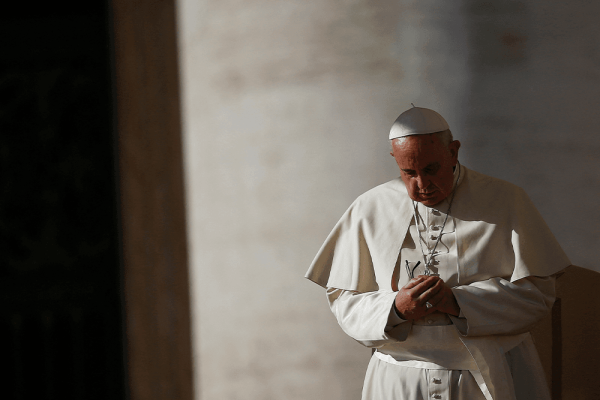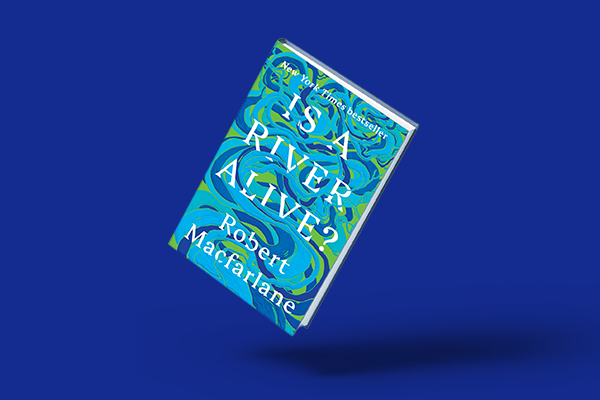In the year 1205, a wealthy young man in the Italian province of Umbria wandered into a crumbling old church called San Damiano. While gazing at the cross, he heard God’s voice telling him to “rebuild my church.” St. Francis of Assisi would go on to challenge the Catholic church with a radical message of pastoral care: Live a life of simplicity and poverty, honor the earth, and tend to the poor, sick, and marginalized.
When Cardinal Jorge Bergoglio of Argentina was appointed pope in 2013, he chose the name Francis, the first pope to do so. After the resignation of Pope Benedict — a deeply conservative intellectual more prone to doctrine than empathy — the choice of the name Francis marked what should have been the beginning of a new era in the church, a return to the basics of mercy and charity, and an openness to new ideas that began at the council of Vatican II in the 1960s. After the death of the reformer pope John XXIII, the church reeled backwards, electing a series of doctrinal and traditionalist popes. Pope Francis, many Catholics thought, was a new beginning.
But Francis’ attempts at reforming the church often clashed with Catholicism’s growing right wing and failed to stop the flood of Catholics abandoning the church. It takes time to turn a 2,000-year-old church around, and ultimately, Francis’ papacy would be a complicated one, marred by the damage done in the church’s past, even as he tried to guide it forward into an unclear and troubling future. But like his namesake saint, he always put being a pastor first.
Along with a group of journalists from all over the world, I went to Rome in September of 2016 for a seminar on writing about the Catholic Church. It quickly became clear that many of the other journalists there were writing for conservative outlets, and they were sometimes vocally critical of the new pope. Like many high-profile Catholics in the media and in politics, they missed the days when the church was culturally significant in the United States and Europe, when Catholics had huge families and traditional gender roles, when abortion was illegal and same-sex marriage not even imaginable. They disliked Francis’ freewheeling style and missed the strictness of Pope Benedict, who at that time was still alive, complicating Francis’ attempts at church reform due to Benedict’s loyalists in the Vatican.
The more progressive and secular writers I befriended on that trip, on the other hand, were enthusiasts for this soccer-loving, yerba maté sipping, plain-speaking pope. We went to a papal audience on an unbearably hot and muggy day and watched the old man give a long homily, ride in circles around the square in an open car, shake hands and kiss babies. Despite his limp and his age, he seemed vigorous and strong. That day felt like a snapshot of a moment of optimism about the future, but it was still overshadowed by the grimmer histories of the church’s role in colonialism, sexual abuse, cruelty toward LGBTQ+ people, and the ostracization of women from positions of leadership.
My journalist friends on that trip and I were very worried about the 2016 American election and what that would mean for liberal Christians, Catholics included. When Donald Trump was elected, our concerns proved valid. Trump courted right-wing evangelicals and right-wing Catholics alike, and Pope Francis was vocally critical of his policies on multiple occasions. The day before Francis died, he even issued a statement that jabbed at Trump’s policies on immigration while Catholic convert and Vice President JD Vance was in Rome, just before the pope met with Vance in his final public appearance. This probably should have made me like the pope even more, and sometimes, it did.
Nonetheless, on issues of gender and sexuality, I often found the pope frustrating. He promised to appoint more women to positions in the Vatican but stopped at a handful. He set up a commission to study the idea of ordaining women as deacons, which came to nothing. He was welcoming to LGBTQ+ people on an individual basis, but he also compared transgender people to nuclear weapons and harped on the notion of “gender ideology” as a dangerous force. I found myself repeatedly disappointed by his propensity to sound like a man from a generation that had binary ideas about gender and old-school ideas about women.
Perhaps like many other Catholics who had been waiting decades for a reformist pope, my expectations were just too high. My own relationship with the Catholic Church has always been complicated. I was raised in an Irish Catholic family and attended Catholic schools, but was educated by members of progressive religious orders who welcomed my blooming feminist point of view. As an adult, I have become even more politically progressive and have subsequently strayed in and out of regular church attendance, but even when I dissent from it, never have I seriously considered leaving the Catholic church. Like many Catholics, I have a soul-deep love for the saints, the sacraments, the contemplative tradition, and for all my friends in the church. Abandoning them would feel like abandoning part of myself.
And Pope Francis made it less cringe-inducing to be a Catholic. Pope Benedict, who like his predecessor John Paul II, was highly likely to have known about the sexual abuse scandal and did little to stop it, making him deeply unpopular. Benedict could seem harsh and cold whereas Francis was warm and humorous. Even my non-Catholic friends liked Pope Francis, and some of them even read “Laudato Si,” his encyclical on climate change and capitalism. He was such a vast improvement on previous popes that it was easy to get on board with him. For many of us paying closer attention, however, when it came to women and LGBTQ+ people, he remained mostly disappointing, and some of the things he said could hurt. But unlike previous popes who seemed detached and otherworldly, he always seemed very human.
Before he was pope, Francis worked among the poor in Buenos Aires. When he became pope, we quickly learned that he preferred to take the bus rather than a private car, refused the gilded vestments Pope Benedict favored, and preferred to live in a modest apartment rather than the Apostolic Palace. He loved soccer and cheered for the San Lorenzo team from Argentina, sipped from a maté gourd, was said to miss eating pizza in Roman trattorias, and gradually developed a teasing, jocular relationship with the Vatican press corps. The humility was refreshing. In contrast to his predecessors, he was, for a pope, very down-to-earth.
But he was also a Jesuit, a religious order known for its intellectual rigor, mission of service, and skill at winning arguments. As the first Jesuit pope, that meant he often butted heads with members of the church hierarchy known as the curia, many of whom have historically viewed Jesuits as crafty, trouble-making leftists. I worked for a decade as a contributing writer for a Jesuit magazine and saw how polarizing Catholics’ attitudes toward Jesuits could be. But Jesuits come in many political flavors, and whether Francis was a leftist or not is up for debate. He was certainly vocal about the dangers of unchecked capitalism, the health of the planet, and the plight of immigrants. For the more staid members of the church who fear change, he was absolutely a troublemaker.
Francis was also a symbol of resistance during the first Trump administration. During Francis’ long hospitalization, there was a palpable spiritual void in the American church. It will deepen with his death. If the next conclave swings back toward a traditionalist pope, any progress Francis made in moving the church forward will be in deep danger. And if it swings toward a pope who might be more progressive than Francis, that pope will also have to be even more of a troublemaker to provide a countercurrent to the global movement embracing the hard right and authoritarian rule.
But St. Francis was a troublemaker too, and troublemakers rarely make friends in institutions obsessed with power. Popes can be unpopular in Rome and popular globally and vice versa. They can be charisma machines or introverted brainiacs. But what they must be are pastors above anything else, and from his days serving in the slums in Buenos Aires, Pope Francis was always a pastor. The pope is primus inter pares, first among equals. Popes are not kings or presidents, not dictators or CEOs. They make mistakes, they stumble, sometimes they hurt people along the way. But the popes who are true pastors recognize that the church and the world it serves can and does change for the better. For any of his faults, Francis never lost sight of this, and neither should we. If that is his legacy, it is one to admire.
Got something to say about what you're reading? We value your feedback!







